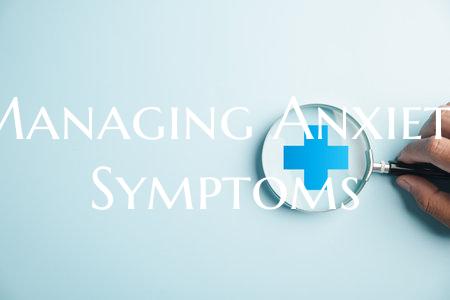
Managing Anxiety Symptoms
Certainly!
Title: Managing Anxiety Symptoms
Anxiety can be a common experience for many individuals, but it is important to understand how to manage its symptoms effectively. Here are some practical strategies to help you cope with anxiety:
1. Deep Breathing Exercises: Deep breathing can help calm the nervous system and reduce anxiety levels. Practice slow, deep breaths by inhaling through your nose for a count of four, holding your breath for a count of four, and exhaling through your mouth for a count of four. Repeat this several times to promote relaxation.
2. Mindfulness and Meditation: Engaging in mindfulness techniques and meditation can help you stay present and focused, reducing anxious thoughts and feelings. Set aside some time each day for meditation or mindfulness exercises to center yourself and promote a sense of calm.
3. Regular Exercise: Physical activity is known to release endorphins, which are natural mood lifters. Regular exercise can help reduce feelings of anxiety and stress. Aim for at least 30 minutes of moderate exercise each day, such as walking, jogging, yoga, or dancing.
4. Healthy Lifestyle Habits: Ensure you are maintaining a healthy lifestyle by eating nutritious meals, getting enough sleep, and limiting caffeine and alcohol intake. Taking care of your physical well-being can positively impact your mental health and reduce anxiety symptoms.
5. Seeking Support: It is important to reach out for support when dealing with anxiety. Talk to a trusted friend, family member, therapist, or counselor about your feelings and experiences. Support groups and online forums can also provide a sense of community and understanding.
6. Practice Relaxation Techniques: Engage in relaxation techniques such as progressive muscle relaxation, visualization, or listening to calming music. Find what works best for you and incorporate these techniques into your daily routine to manage anxiety symptoms effectively.
Remember that managing anxiety is a process, and it may take time to find the strategies that work best for you. Be patient with yourself, practice self-compassion, and seek professional help if needed. By implementing these strategies and developing a personalized plan for managing anxiety, you can take control of your symptoms and improve your overall well-being.